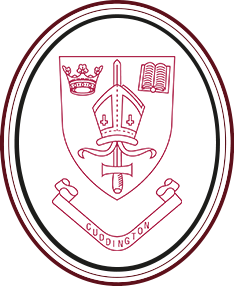History
Purpose of Study
A high-quality history education will help pupils gain a coherent knowledge and understanding of Britain’s past and that of the wider world. It should inspire pupils’ curiosity to know more about the past. Teaching should equip pupils to ask perceptive questions, think critically, weigh evidence, sift arguments, and develop perspective and judgement. History helps pupils to understand the complexity of people’s lives, the process of change, the diversity of societies and relationships between different groups, as well as their own identity and the challenges of their time.
The national curriculum for history aims to ensure that all pupils:
- know and understand the history of these islands as a coherent, chronological narrative, from the earliest times to the present day: how people’s lives have shaped this nation and how Britain has influenced and been influenced by the wider world
- know and understand significant aspects of the history of the wider world: the nature of ancient civilisations; the expansion and dissolution of empires; characteristic features of past non-European societies; achievements and follies of mankind
- gain and deploy a historically grounded understanding of abstract terms such as ‘empire’, ‘civilisation’, ‘parliament’ and ‘peasantry’
- understand historical concepts such as continuity and change, cause and consequence, similarity, difference and significance, and use them to make connections, draw contrasts, analyse trends, frame historically-valid questions and create their own structured accounts, including written narratives and analyses
- understand the methods of historical enquiry, including how evidence is used rigorously to make historical claims, and discern how and why contrasting arguments and interpretations of the past have been constructed
The History Curriculum at Cuddington
Cuddington Community will “Bring out the Best” in our pupils by providing a language rich and diverse experience both within and beyond the classroom. Our flexible approach enables everyone to thrive personally and academically, overcome challenges and prepare them for lifelong learning.
This is reflected in our curriculum approach to learning History, using the aims set out in Development Matters (2021) and the National Curriculum (2014) as frameworks for how we map content, ensure progression in knowledge and sequence our units of work.
Intent, Implementation, Impact
It is our goal at Cuddington Community Primary School to deliver a high-quality history education that gives children the foundations they need to understand the value of history in all aspects of life. We place great emphasis on the appropriate knowledge, skills and subject-specific vocabulary to be successful and ready for the next stage of their education. A high-quality history education will help pupils gain a coherent knowledge and understanding of Britain’s past and that of the wider world. It should inspire pupils’ curiosity to know more about the past. History helps pupils to understand the complexity of people’s lives, the process of change, the diversity of societies and relationships between different groups, as well as their own identity and the challenges of their time. Children will develop a chronologically secure knowledge and understanding of British, local and world history, establishing clear narratives within and across the periods they study. They will be taught to make connections, contrasts and trends over time and develop the appropriate use of historical terms.
Cuddington Community Primary School use high quality resources from Pearson’s Active Learn History scheme in KS1 and KS2 in lessons for history and have developed a comprehensive curriculum that meets the needs of our children. By the end of each key stage, pupils learn to know, apply and understand the matters, skills and processes specified history. which supports teaching, learning and assessment. Children will be able to build on prior knowledge and link ideas together, enabling them to make links between the past, present, and future. Children are also asked to write an essay at the end of each history unit, to demonstrate what they have learnt.
The successful approach to the teaching of history at Cuddington Community Primary School will result in an engaging, high quality history education, that provides children with the foundations for understanding the world that they can take with them once they complete their primary education.
KS1 and KS2 Curriculum Overview
|
|
Autumn |
Spring |
Summer |
|
Year 1 |
|
|
Plague and Fire |
|
Year 2 |
Travel and Transport |
|
Pocahontas Local History |
|
Year 3 |
Prehistoric Britain |
Shang Dynasty |
Ancient Greece |
|
Year 4 |
Roman Britain |
Anglo-Saxons and Scots |
Vikings |
|
Year 5 |
Benin Kingdom |
Medieval Monarchs |
Changing Britain |
|
Year 6 |
Industrial Revolution and Local History |
Civil Rights |
Twentieth Century Conflict |

